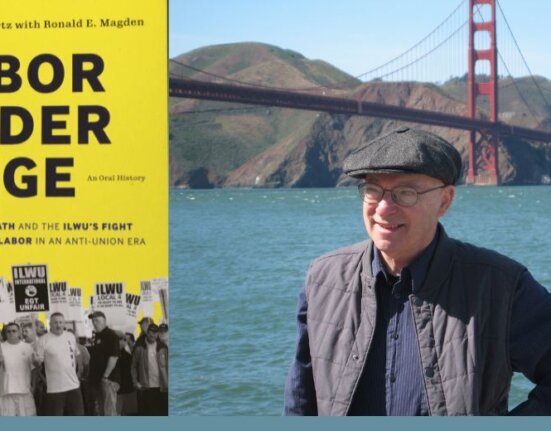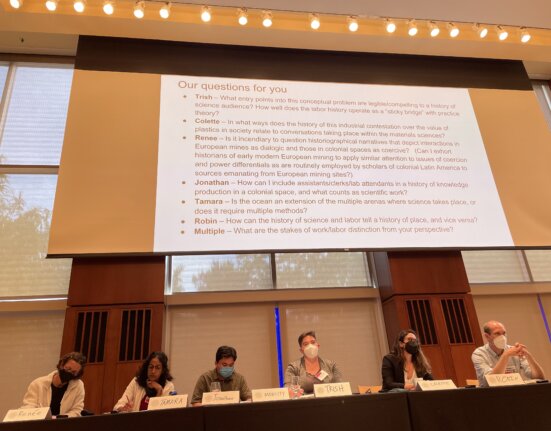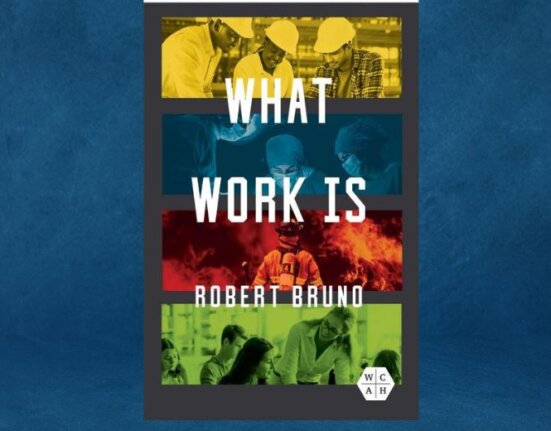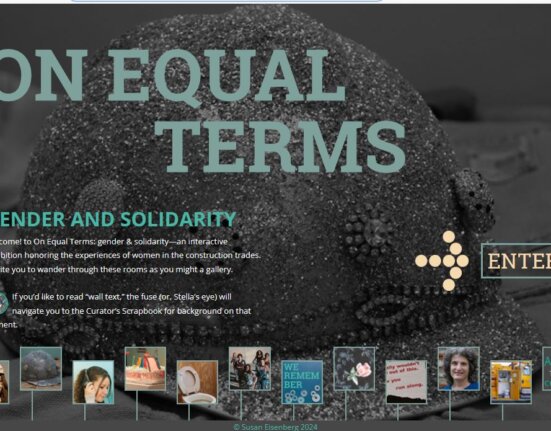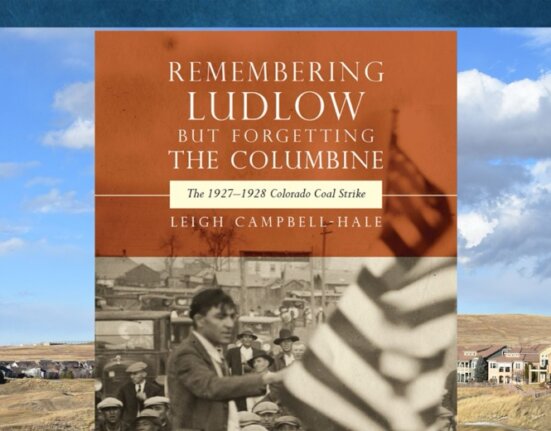The 2013 LAWCHA national conference ended with a closing session held at Cooper Union Hall on Saturday, June 4th at 4:30. The closing plenary, entitled “Looking Forward: New Directions and Strategies for Labor,” featured activists, labor leaders, and academics who all offered remarks and insights into what they saw as the new directions and future for the American labor movement. The panel included notable figures as John Wilhelm, president of UNITE-Here; Ruth Milkman, professor of sociology at CUNY Graduate center and Murphy Institute for Worker Education; Ed Ott, past president of New York Central Labor Council and distinguished lecturer in Labor Studies at the Murphy Institute; Jaribu Hill, executive director of Mississippi Worker’s Center for Human Rights; Erik Forman, member of the IWW and a labor organizer involved with the Starbucks and Jimmy John’s union efforts; Linda Burnham research director at the National Domestic Workers’ Alliance; and Elaine Bernard, executive director of Labor and Worklife Program at Harvard Law School.
Although the focus of each contributor was varied, given the wide range of background and experiences of the various panelists, two themes quickly emerged- optimism and urgency. Wilhelm, admitting that optimism in a time of organized conservative assault on working class people can sometimes be mistaken for naïveté, stressed that this was not the case. Looking to efforts to organize Latinos in Texas, so as to turn the state “blue,” and noting that labor has always responded to the changes of capitalism by inventing new tools for working class people, optimism was not so much an emotional response as it was a logical conclusion, he argued.
This optimism was further grounded in historical commentary by Milkman who noted that the plight of the worker, the seemingly insurmountable odds facing labor, and the strength of capitalist leaders is the norm for American history. Indeed Milkman said, the period of the post WWII era was largely the “exceptional history” bookended by the Wagner Act and 1975. Therefore, the consensus seemed to be that instead of despair activists, academics, and leaders should see the present as an opportunity to find new ways to address the worker as a whole person, focusing not solely on wages and benefits but also issues of social justice.
Hill spoke passionately about this, citing her experiences of organizing and fighting oppression as head of the Mississippi Workers’ Center for Human Rights. For too long, she argued, members of the working class have been “defined by [their] oppressors.” Target, Wal-Mart, Sears, and other large corporations are currently all in the business, Hill stressed, of directly benefiting from the exploitation of working class people around the globe. This is evidenced by the recent occurrences of the Bangladesh tragedy to the human rights atrocities that occurred to working class people in the aftermath of Hurricane Katrina.
“These companies must be exposed,” Hill said. This sentiment was in keeping with many of the sessions during the LAWCHA conference from “Organizing Workers along the Food Chain,” held on the opening day of the conference, to “From Sweatshop Floor to Retail Store” which explored the way in which modern workers in the service industry are exploited by global corporate capitalist models. Speaking directly to this, Forman discussed how the service industry is particularly good at dominating the working force by not only offering below standard living wages, lack of opportunities, and exploitive practices but also by invading the personal thoughts of the worker- be it in the form of continuously expecting workers to greet customers or placing a quota-like system of demanding employees to meet specific numbers in terms of sales, and membership cards. This occupying of the mind of workers results in oppression in totality as all resources and areas of the worker become dedicated to the corporation’s mission of higher profits and lower costs. This situation leaves a labor movement that “has only liberated some but left many behind” in terms of the lack of organization found in the service industry. Likewise, Hill spoke to these historic problems noting the virtual lack of organization found throughout much of the American South.
This, far from being a damnation of organized labor, is simply the present reality. As nearly any historian will note, capitalism is a creatively destructive force, constantly evolving and tearing down existing structures. This leaves labor with the ironic role of being a somewhat reactionary force while maintaining the possibility of being a revolutionary actor (realized more so in certain time periods than others). As capitalism changes the political, social, and economic realities of the members of society, labor must constantly be willing to reinvent itself in ways that address the new realities that working class people confront. The service industry, international slave systems, and a continuously moving behemoth of corporate capitalism are simply the realities our generation of scholars and activists face.
“Look to groups who seem to be ‘unorganizable,’” Burnham urged, “because they are often the ones struggling to be organized.” This sense of the possible, seemingly alive and well in the present day labor movement, will serve all who struggle against oppression, as the panelist themselves attested.
“We need to dare to struggle,” Hill concluded, “so we can win.”



